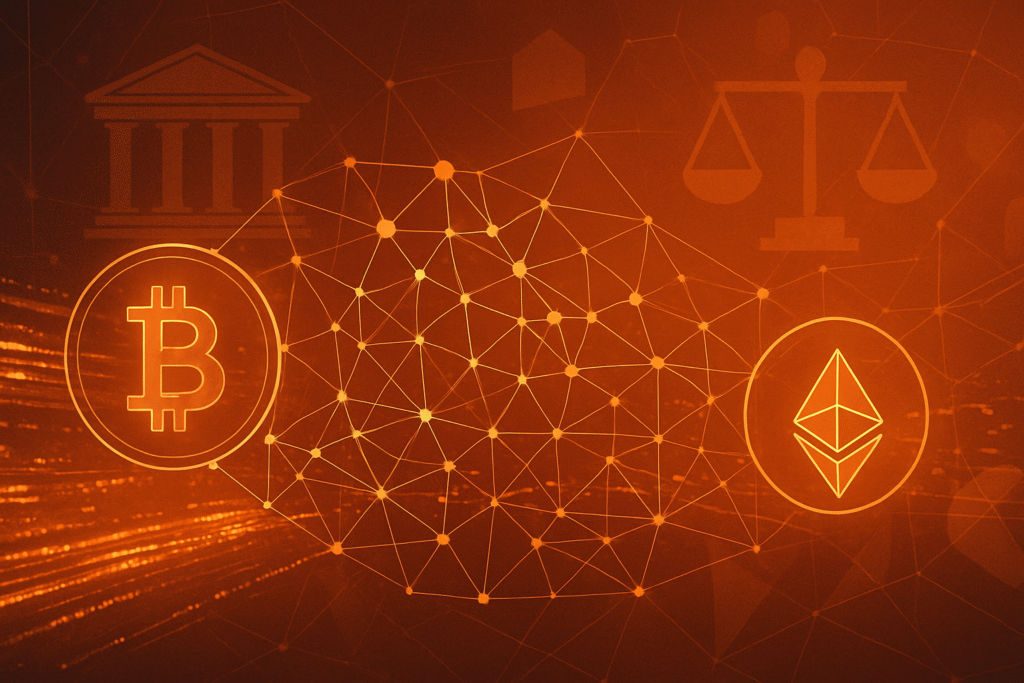Senate GOP Joins the Crypto Dialogue: A Bipartisan Push for Regulatory Clarity

Washington D.C. – In a significant development signaling heightened political engagement with the burgeoning digital asset sector, Senate Republicans have announced their intention to convene meetings with leading cryptocurrency CEOs. This move comes hot on the heels of a scheduled roundtable discussion between Senate Democrats and prominent industry figures set for Wednesday, October 22, 2025. The parallel engagements underscore a growing bipartisan recognition of cryptocurrency's economic impact and the urgent need for a comprehensive regulatory framework in the United States.
The Senate GOP's decision, expected to take place in mid-to-late October 2025, positions these discussions as a crucial follow-up to the Democratic-led initiative. Both parties aim to tackle the stalled crypto market structure legislation, with Republicans keen to advance their own legislative proposals that seek to clarify the jurisdictional boundaries between the Securities and Exchange Commission (SEC) and the Commodity Futures Trading Commission (CFTC). This intensified dialogue from both sides of the aisle is a pivotal moment for the crypto ecosystem, potentially paving the way for long-awaited regulatory clarity or, conversely, highlighting persistent partisan divides. The industry is watching closely, hopeful that these high-level discussions will finally break the legislative gridlock that has characterized crypto policy in Washington.
Market Impact and Price Action
While the immediate market reaction to the announcement of these specific meetings has not manifested in dramatic price swings, the underlying sentiment among investors and traders is one of cautious optimism tempered by historical volatility surrounding regulatory news. The prospect of increased political engagement, particularly bipartisan efforts, generally introduces a degree of stability and legitimacy to the crypto market. However, the exact nature of future legislation remains uncertain, and this ambiguity can lead to periods of consolidation or anticipation rather than immediate directional moves.
Historically, news of impending regulation or legislative progress has often led to short-term fluctuations. Positive news, such as the passage of the "GENIUS Act" related to stablecoins, has been met with positive sentiment, while proposals perceived as overly restrictive, like a leaked Democratic proposal on DeFi oversight, have drawn significant industry backlash. Currently, trading volumes for major cryptocurrencies like Bitcoin (BTC) and Ethereum (ETH) reflect a market awaiting concrete developments. Key support and resistance levels are being closely watched, as any definitive legislative breakthroughs or setbacks could trigger significant price action. The current environment suggests that the market is pricing in the potential for regulatory clarity, but remains sensitive to the details of any proposed frameworks. Investors are keenly aware that comprehensive, well-defined regulation could unlock institutional investment and broader adoption, while poorly conceived rules could stifle innovation and lead to market outflows.
Community and Ecosystem Response
The crypto community's response to these political overtures is a mix of hope and apprehension. On social media platforms like Crypto Twitter and Reddit, discussions are buzzing with speculation about the potential outcomes of these high-stakes meetings. Many enthusiasts and industry participants express a strong desire for regulatory certainty, believing it is essential for the maturation and mainstream adoption of digital assets. There is a palpable sense that the industry has matured to a point where clear rules of engagement are no longer optional but critical for future growth.
However, a significant segment of the community remains wary, particularly concerning the prospect of stringent regulations that could stifle innovation, especially in the decentralized finance (DeFi) sector. The leaked Democratic proposal advocating for Anti-Money Laundering (AML) and Know Your Customer (KYC) requirements for DeFi front-end platforms previously sparked widespread criticism, with many arguing such measures are "unworkable" and antithetical to the ethos of decentralization. Influential figures like Brian Armstrong (CEO of Coinbase (NASDAQ: COIN)), Sergey Nazarov (CEO/Co-founder of Chainlink), Mike Novogratz (CEO of Galaxy Digital (TSE: GLXY)), and Hayden Adams (CEO of Uniswap) — all of whom are slated to meet with Senate Democrats — are expected to champion innovation-friendly policies. Their involvement, alongside other industry leaders, signifies a concerted effort by the crypto ecosystem to actively shape policy rather than merely react to it. The broader sentiment reflects a plea for pragmatic, forward-thinking regulation that protects consumers without stifling the very innovation that defines Web3.
What's Next for Crypto
The upcoming meetings between crypto CEOs and both Senate Democrats and Republicans mark a critical juncture for cryptocurrency regulation in the U.S. In the short term, the direct outcome of these discussions will be closely scrutinized for any signs of bipartisan consensus or continued divergence. Key senators, including Kirsten Gillibrand (D) and Cynthia Lummis (R), who previously co-sponsored the "Responsible Financial Innovation Act," will be instrumental in bridging the partisan gap. Any joint statements or renewed legislative efforts following these meetings would serve as significant catalysts.
Looking further ahead, the long-term implications are profound. The current legislative stalemate has created an environment of regulatory uncertainty, hindering innovation and potentially pushing crypto businesses offshore. Successful bipartisan engagement could lead to comprehensive market structure legislation that clearly defines the roles of the SEC and CFTC, classifies digital assets, and establishes frameworks for stablecoins and DeFi. This clarity is crucial for institutional investors and traditional financial players to enter the market with confidence, potentially unlocking trillions in capital. Conversely, a failure to find common ground could prolong the regulatory limbo, leading to a fragmented approach with individual states attempting to fill the void, or continued enforcement actions by federal agencies without a clear legislative mandate. Strategic considerations for crypto projects and investors involve actively participating in policy discussions, advocating for balanced regulation, and preparing for potential compliance shifts as the regulatory landscape evolves.
Bottom Line
The intensified political engagement from both sides of the aisle with the crypto industry is an undeniable signal of cryptocurrency's growing importance in the national economic and technological discourse. For crypto investors and enthusiasts, the key takeaway is that the era of regulatory ambiguity in the U.S. appears to be drawing to a close, albeit perhaps slowly. While the path to comprehensive legislation is fraught with political complexities, the very act of both Senate caucuses seeking direct dialogue with industry leaders is a significant step forward.
The long-term significance of these meetings cannot be overstated. They represent a crucial opportunity to establish a robust and clear regulatory framework that could either accelerate or impede crypto adoption in the world's largest economy. A well-crafted regulatory environment could foster mainstream acceptance, encourage institutional participation, and solidify the U.S.'s position as a leader in digital innovation. Conversely, a fragmented or overly restrictive approach could stifle growth and push innovation to more accommodating jurisdictions. Investors and stakeholders should closely monitor the Democratic roundtable on October 22, 2025, and the subsequent Republican meetings, as well as any legislative proposals that emerge. The rhetoric from key policymakers and the industry's ability to present a unified, constructive front will be vital metrics to watch in the coming months as Washington grapples with defining the future of digital assets.
This article is for informational purposes only and does not constitute financial or investment advice. Cryptocurrency investments carry significant risk.
More News
View More




Recent Quotes
View More
Quotes delayed at least 20 minutes.
By accessing this page, you agree to the Privacy Policy and Terms Of Service.